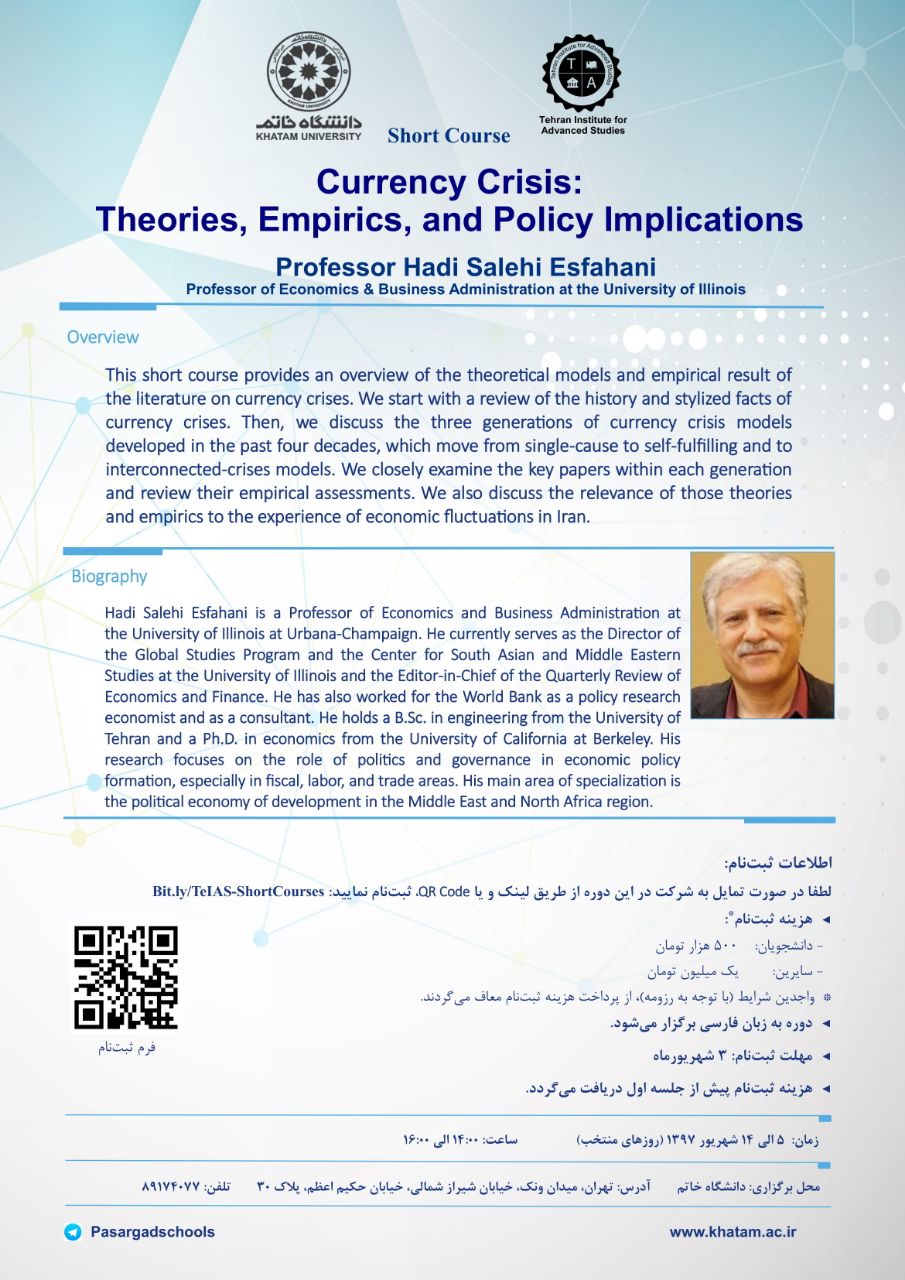
, Building No2.
Address: Mollasadra Blvd., North Shirazi St., East Daneshvar St., No.17.
See location on Google map
Professor Hadi Salehi Esfahani
Professor of Economics 8, Business Administration at the University of Illinois
Overview
This short course provides an overview of the theoretical models and empirical result of the literature on currency crises. We start with a review of the history and stylized facts of currency crises. Then, we discuss the three generations of currency crisis models developed in the past four decades, which move from single-cause to self-fulfilling and to interconnected-crises models. We closely examine the key papers within each generation and review their empirical assessments. We also discuss the relevance of those theories and empirics to the experience of economic fluctuations in Iran.
Biography

Hadi Salehi Esfahani is a Professor of Economics and Business Administration at the University of Illinois at Urbana-Champaign. He currently serves as the Director of the Global Studies Program and the Center for South Asian and Middle Eastern Studies at the University of Illinois and the Editor-in-Chief of the Quarterly Review of Economics and Finance. He has also worked for the World Bank as a policy research economist and as a consultant. He holds a B.Sc. in engineering from the University of Tehran and a Ph.D. in economics from the University of California at Berkeley. His research focuses on the role of politics and governance in economic policy formation, especially in fiscal, labor, and trade areas. His main area of specialization is the political economy of development in the Middle East and North Africa region.
